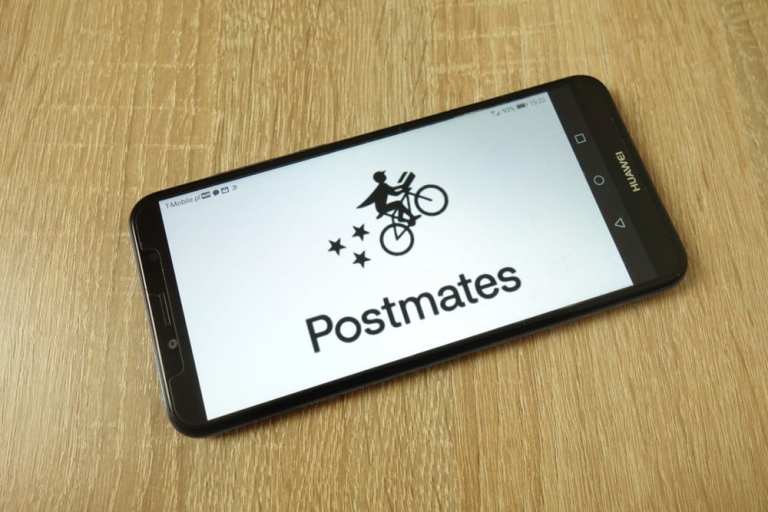Are Postmates Sidewalk Robots Just The Tip Of The Self-Delivery Frontier?

The need for food delivery keeps pushing the edge of retail innovation – and could even lead to crowding on sidewalks and competing for room with pedestrians and rented scooters – as Postmates plans to test delivery robots in San Francisco.
According to a report, the food delivery service has received a permit from local officials for such testing. “The permits are active for 180 days and authorize the testing of up to three autonomous delivery devices,” that report stated. “The issuance of the permit makes San Francisco one of the first cities to formally allow companies to test autonomous delivery robots under a new pilot program.”
The work reportedly involves Serve, which is the name for Postmates’ delivery robot. “Serve can carry 50 pounds for up to 25 miles after one charge,” according to the report. “Postmates has a human pilot remotely monitoring the Serve fleets and each rover has a ‘Help’ button, touchscreen and video chat display for customers or passersby to use if necessary. The company originally said they planned to roll out the bots in 2019, though no pilots have been officially announced yet.”
Intense Focus
Unmanned delivery is an intense area of focus for food delivery, including QSRs and grocery stores. For instance, Domino’s Pizza and robotics company Nuro are teaming up to use a custom unmanned vehicle dubbed R2 this year. The fleet from Nuro will serve certain Domino’s customers in Houston who place their orders online, the company said in an announcement.
According to the announcement, certain diners who place an order from a participating location will be able to tap into the autonomous delivery option. Diners can track the vehicle through the company’s app and will receive a special PIN code to unlock a compartment to retrieve their pizzas.
In an effort to tackle grocery delivery, Kroger previously announced it has begun to use autonomous vehicles in Arizona. The offering comes on the heels of an experimental program by the grocer and California startup Nuro, Reuters reported.
The grocer, along with Nuro, had been using a fleet of Prius cars with operators. The company said those cars have made almost 1,000 deliveries. The fleet is now growing with R1 unmanned vehicles, which don’t have passengers or drivers and only deliver goods. The concept has been in development with Nuro since 2016.
In the announcement of the offering, Kroger Chief Digital Officer Yael Cosset said, “Kroger customers are looking for new, convenient ways to feed their families and purchase the products they need quickly through services like pickup and delivery. Our autonomous delivery pilot with Nuro over the past few months continues to prove the benefit of the flexible and reliable technology.”
Automotive Interest
Indeed, Ford and Postmates earlier formed a partnership that would allow the automaker to test its self-driving technology for deliveries. At the time, the company said its Argo AI test vehicles would use Waze software for real-time navigation as well as traffic services. It was reported at the time that the vehicles would be deployed in a yet-to-be-named city.
Beyond larger firms, smaller companies unveiled autonomous vehicle pilots this year: In October of 2018, udelv said it was bringing its self-driving delivery technology to Oklahoma City. The company said at the time it would provide 10 customized cargo vans to stores such as Smart Saver and Uptown Grocery. The company called the agreement the largest deal for autonomous delivery vehicles (ADV) to date in an announcement, as it seeks to improve upon the downsides of traditional delivery methods.
Expect more such tests and programs as companies and retail customers look for quicker and more efficient deliveries.